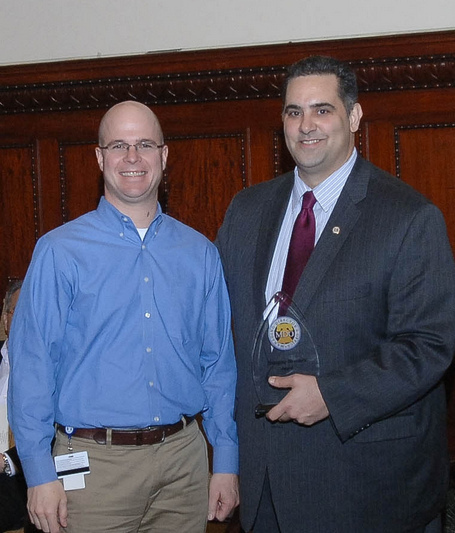The first year of Mayor Michael Nutter‘s Open Data Executive Order is nearly over, boasting more than 50 government data sets released. That was the “low-hanging fruit,” said Chief Data Officer Mark Headd.
Now the tough stuff starts.
In his second year as the city’s open data advocate, Headd is setting his sights on releasing the trickier, more elusive data sets, like those that that are “trapped in PDFs” on city websites and transparency-focused data like city employee salaries, police complaints and unreleased crime data. Find a full list of data Headd hopes to release here.
Headd won’t have to go at it alone. Since May, Headd has been leading a team of about 15 staffers from the city’s Office of Innovation and Technology. The team, which used to be focused on the city’s websites and apps, will have a new open data focus. It’s not a huge shift in duties and expertise, Headd said, since his team will work on liberating data that’s hidden in city websites and making that data accessible to developers in the form of APIs.
In other words, city websites are a treasure trove of data but that data is not in any developer-friendly format.
Take, for example, the city’s Office of Property Assessment (OPA) website, which is the team’s first big project and close to launch. The site is by far the city’s most-trafficked website, Headd said, especially now, during Philadelphia’s property value reassessment movement.
The site wasn’t built to handle such a high amount of traffic, Headd said. That’s why his team is redesigning the site, complete with a public API for property assessment data. The city will use this public API for its OPA website the same way that a civic hacker would if she were building a property assessment app at a hackathon.
Headd believes all city websites should be built or redesigned this way going forward. It would keep the city honest, he said.
“It makes us eat our own dog food,” he said.
As for working toward releasing more controversial data, like city employee salaries and police complaints, it’s a matter of continuing to shift the culture of Philadelphia’s city government.
Likening his job to that of a psychiatrist, Headd said that part of his job is to explain to city officials that it’s fair for people to ask how much the city spent on contracts last year or how many police complaints were filed in a certain police district.
“We need people in government to understand that these are fair questions,” he said.
Join the conversation!
Find news, events, jobs and people who share your interests on Technical.ly's open community Slack

Philly daily roundup: East Market coworking; Temple's $2.5M engineering donation; WITS spring summit

Philly daily roundup: Jason Bannon leaves Ben Franklin; $26M for narcolepsy treatment; Philly Tech Calendar turns one

Philly daily roundup: Closed hospital into tech hub; Pew State of the City; PHL Open for Business

